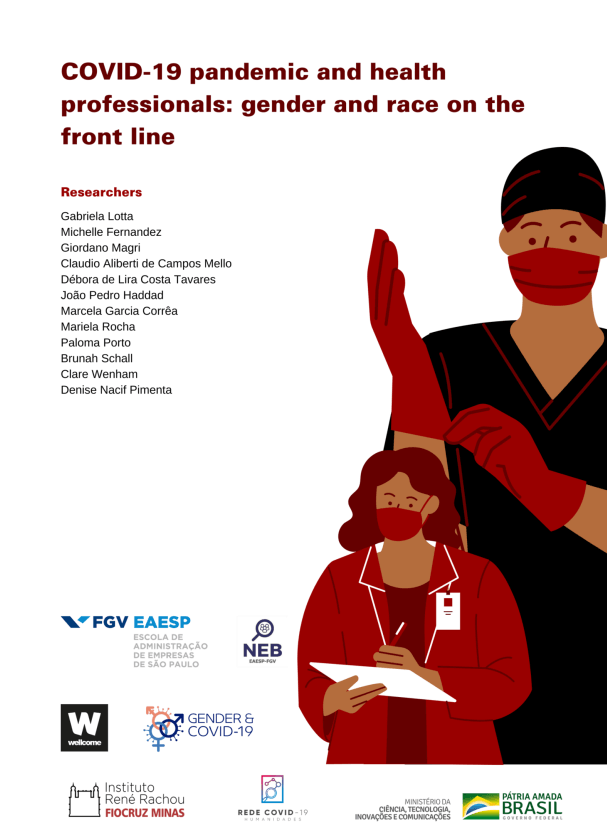The discussion on the consequences of the COVID-19 pandemic has also been accompanied by a strong debate on the exacerbation of structural inequalities in Brazil and in the world. While the rapid spread of the disease and the large number of deaths demonstrate that the virus itself does not discriminate who will be infected, gender, race and class markers are vulnerable conditions for infection and coping with COVID-19, causing different social groups to have suffered the impacts of the pandemic disproportionately and diversely (ESTRELA et al., 2020).
Women in general and black women in particular are protagonists in maintaining essential services in health emergencies contexts (WENHAM et al. 2020). They make up 70% of the world’s health professionals (WHO, 2020a). In Brazil, according to the 2000 Census, they represent almost 70% of the professionals in the sector, 62% for the higher education and 74% of medium and elementary level categories. Furthermore, in the categories of nursing and psychology, they have a percentage above 80%, and, in the medical category, they represent 36% (PIRES, 2020). Therefore, they are constantly exposed to the risks of contamination (CARLI, 2020; WHO, 2020a; WHO, 2020b)…
Lotta, G., Fernandez, M., Magri, G., de Campos Mello, C. A., Tavares, D. D. L. C., Haddad, J. P., … & Pimenta, D. N. (2020). COVID-19 pandemic and Health Professionals: Gender and Race on the Front Line.






